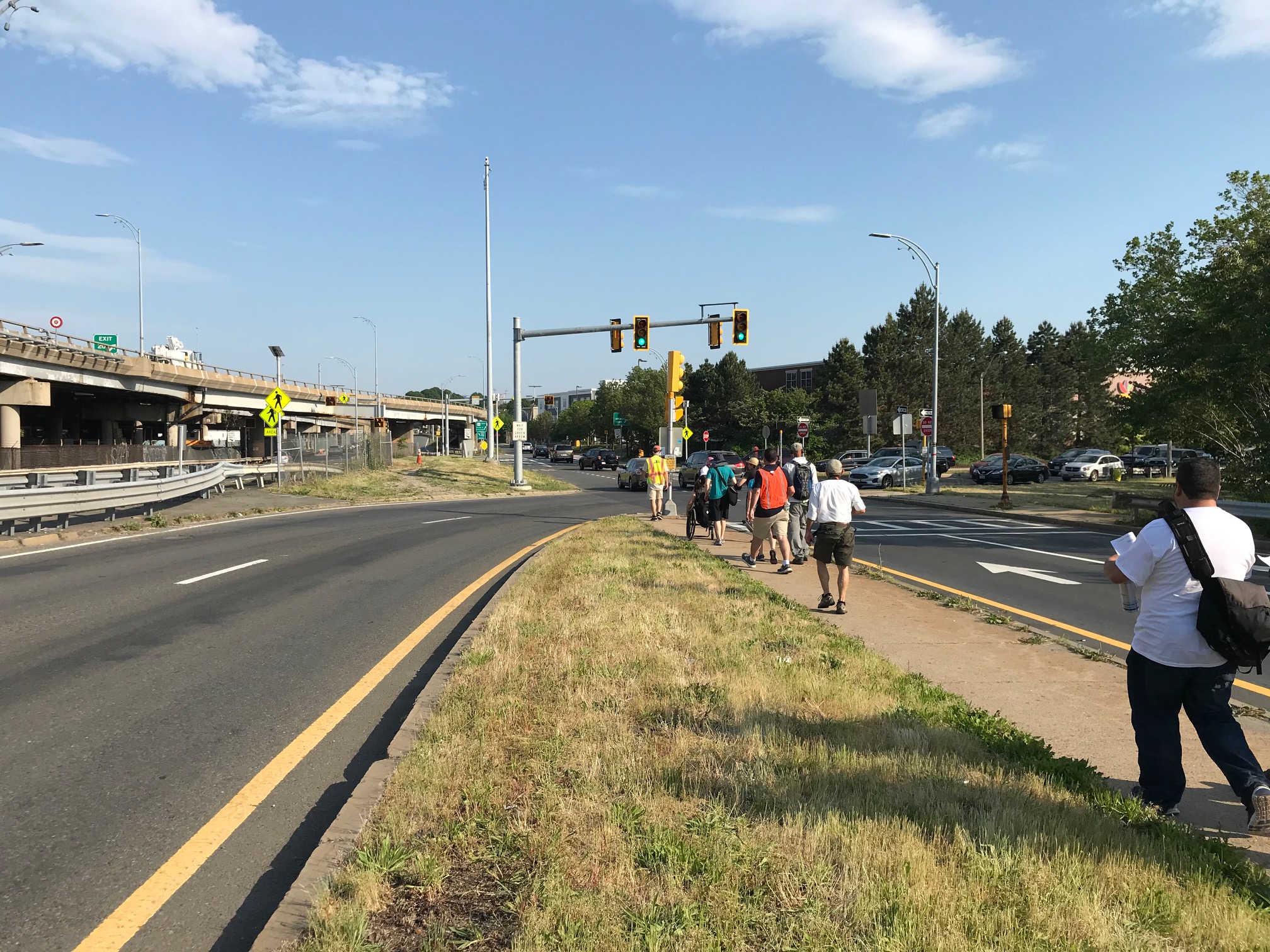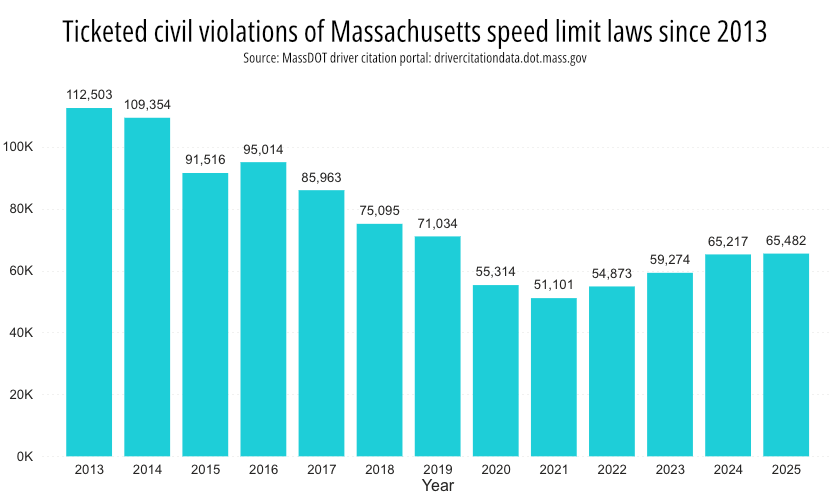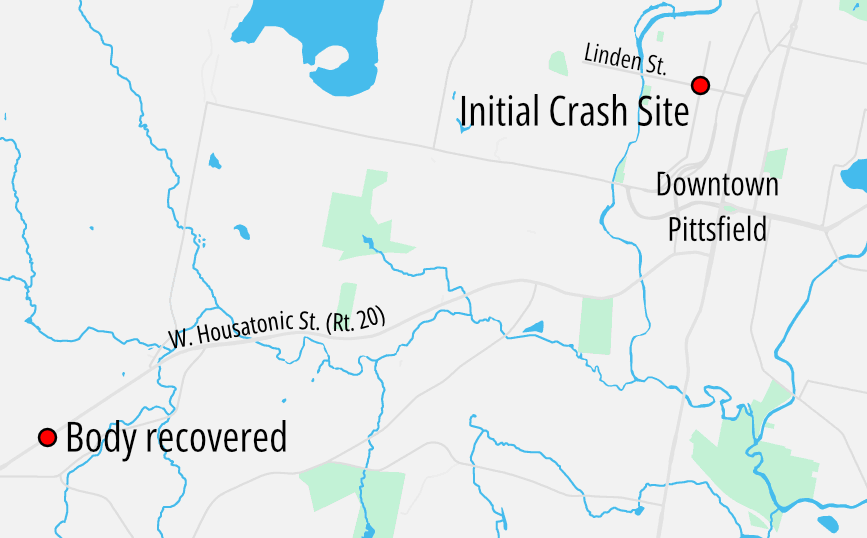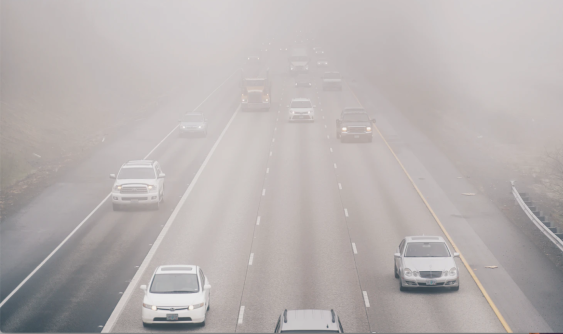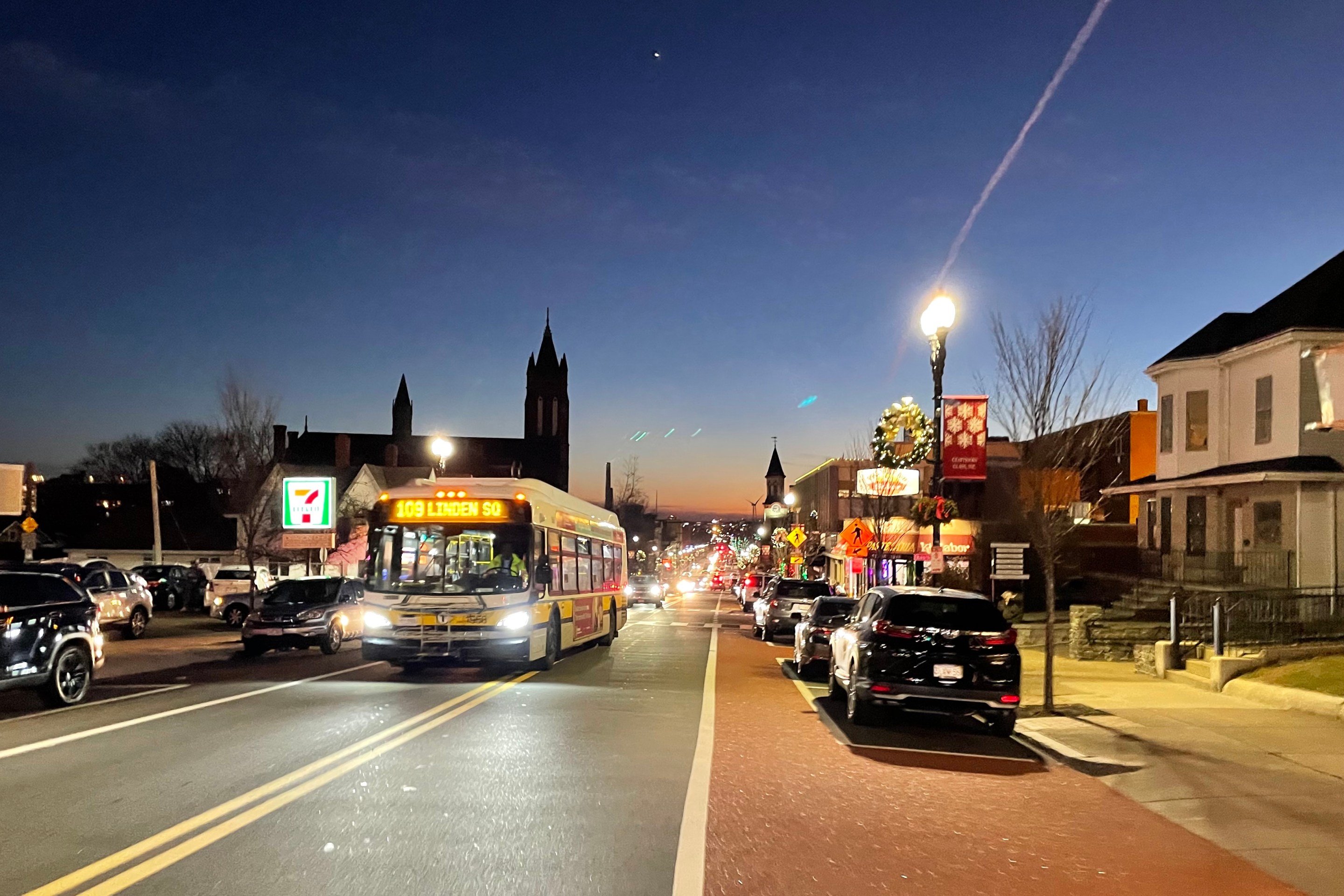Several cities in the Boston region are getting ready to file formal petitions to reduce speed limits on dangerous state-owned roadways within their boundaries.
The last-minute passage of a roadway safety bill at the end of December created a new process by which local municipalities can petition state agencies to reduce speed limits on state-owned roadways within their boundaries.
The new law states that city and town governments may petition the state "to modify the speed limit on a state highway within their geographic boundaries. Said petition shall be made in writing to the state traffic engineer. The department shall have 90 days to approve or deny the petition."
If the state engineer approves it, or lets 90 days go by without taking action, "the petitioned speed limit shall become effective" and the state agency in charge of the roadway will be responsible for putting up new speed limit signs.
On January 26, MassDOT spokesperson Kristen Pennucci told StreetsblogMASS that "MassDOT has not received any petitions for changing a speed limit on State Highway, as of yet."
But according to Brad Rawson, the City of Somerville's Director Transportation & Infrastructure, MassDOT issued some guidelines for the process near the end of January.
"We are in the process of filing," Rawson told StreetsblogMASS in an email message last week. "We kicked off our administrative process in January, but haven’t finalized draft petition language yet."
Rawson said that Somerville plans to request lower speed limits on Alewife Brook Parkway (Route 16), the McGrath Highway (Route 28) and Mystic Avenue (Route 38).
All three of those roadways have been under intense scrutiny from local safety advocates, who have taken to calling the area where Mystic Avenue and the McGrath Highway meet the "corridor of death."
"These petitions are intended to complement the physical traffic calming and road diet projects that we’ve been working on with the relevant state agencies," said Rawson.
Representatives from the cities of Cambridge and Boston said that they are also considering submitting their own petitions for state-controlled roadways within their boundaries.
Elise Harmon-Freeman, communications manager for the City of Cambridge Traffic, Parking, and Transportation Department, told StreetsblogMASS that "Cambridge is considering submitting a petition to change speed limits on MassDOT roadways within the city, but we have not started the process yet" and could not share details about which streets are being considered for petitions.
Harmon-Freeman also noted that state-owned roadways in Cambridge are inconsistent with speed limits on city-owned streets.
"In 2019, we reduced the speed limit on most city-owned streets to 20 mph, and the default speed limit on larger city-owned arterial roads is 25 mph," wrote Harmon-Freeman in an email to StreetsblogMASS.
A spokesperson for the Boston Transportation Department (BTD) told StreetsblogMASS that "BTD is in the process of updating our high crash map to include state roads, and the data collected will help inform our decision to petition MassDOT to reduce the speed limit."
The spokesperson also noted that speed limits had already been reduced on to 25 mph on both the Arborway and Jamaicaway, two four-lane roadways that are owned by the state's Department of Conservation and Recreation and are a source of considerable traffic violence and air pollution in the city's Emerald Necklace parklands.
